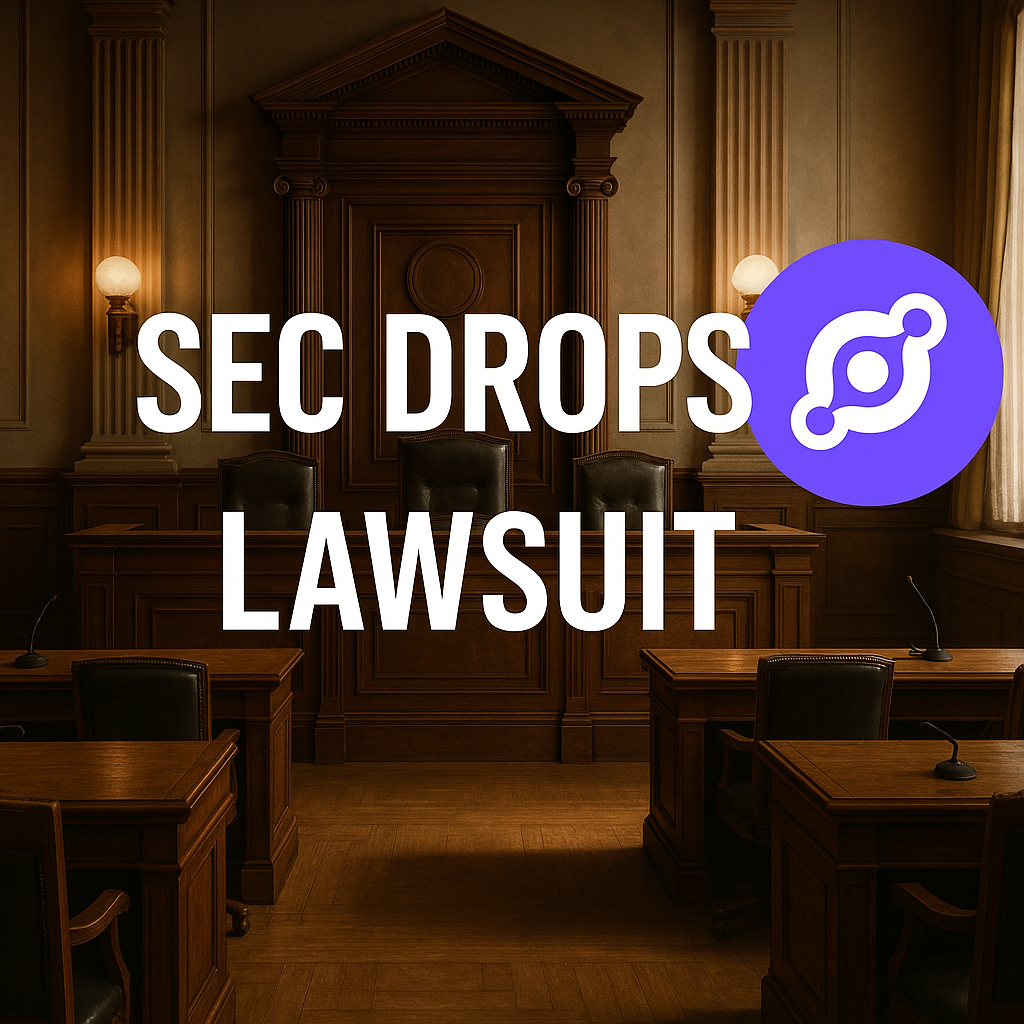The SEC has dismissed its lawsuit against Helium developer Nova Labs over the unregistered issuance of HNT tokens. A potential turning point for U.S. crypto regulation under the Trump administration.
SEC Drops Lawsuit Against Helium Over HNT Token – What It Means for Crypto Regulation
In a major development for the crypto industry, the U.S. Securities and Exchange Commission (SEC) has officially dismissed its lawsuit against Nova Labs, the developer behind the decentralized wireless network Helium. The case revolved around claims that Helium’s native token, HNT, constituted an unregistered security when issued in 2019.
Originally filed in January 2025, the lawsuit was one of the final regulatory actions under former SEC Chair Gary Gensler, who stepped down following the inauguration of President Donald Trump. Under the new administration, the SEC has signaled a dramatic shift in its stance toward digital assets.
Case Dismissed “With Prejudice”: A Legal Win for Nova Labs
The SEC’s dismissal of the lawsuit with prejudice means it cannot bring the same charges against Nova Labs again for the 2019 token issuance.
“We can now definitively say that all compatible Helium Hotspots and the distribution of HNT, IOT, and MOBILE tokens through the Helium Network are not securities,” Nova Labs wrote in a blog post following the announcement.
This ruling is seen as a precedent-setting moment for Web3 infrastructure projects, suggesting that token distribution models designed to incentivize decentralized network participation may not automatically fall under securities law.
Helium Network Remains Strong Despite Market Volatility
Helium is a decentralized network powered by blockchain that enables users to deploy wireless hotspots and support the Internet of Things (IoT). As of April 2025, the network has around 375,000 active hotspots globally.
While HNT’s market cap currently stands at approximately $480 million, it once peaked at over $5 billion in late 2021, reflecting both the potential and volatility of crypto-based infrastructure projects.
The Trump Administration’s Crypto-Friendly Regulatory Shift
President Trump has taken a notably pro-crypto stance, pledging to support innovation and even proposing the creation of a national Bitcoin reserve. Since his administration began, the SEC has backed away from high-profile lawsuits against major crypto players like Coinbase, Ripple, Kraken, and Uniswap.
With Paul Atkins, a known crypto advocate, now serving as SEC Chair, the agency is undergoing a comprehensive review of its crypto-related guidelines. Acting Chairman Mark Uyeda announced on April 5 that the SEC is reconsidering seven key staff statements, including the 2019 FinHub framework that applied the Howey Test to token offerings.
This review is being conducted under Executive Order 14192, titled Unleashing Prosperity Through Deregulation, and coordinated with the Department of Government Efficiency (DOGE), led by Elon Musk.
Key Regulatory Changes: Stablecoins, Custody, and Risk Guidance
On April 4, 2025, the SEC published new guidance classifying certain fiat-backed stablecoins as non-securities, removing them from transaction reporting requirements. This move is expected to boost stablecoin adoption in the U.S. and reduce compliance friction for fintech firms.
Other policy areas under review include:
- Crypto custody requirements for registered investment advisers
- Bitcoin futures risk disclosures
- Guidance from 2022 related to industry bankruptcies and contagion
Why This Matters
The dismissal of the Helium lawsuit could become a watershed moment in how the U.S. regulates Web3 projects, decentralized infrastructure, and token economies. It sends a strong message that under the Trump administration, crypto innovation will be met with regulatory clarity, not hostility.
